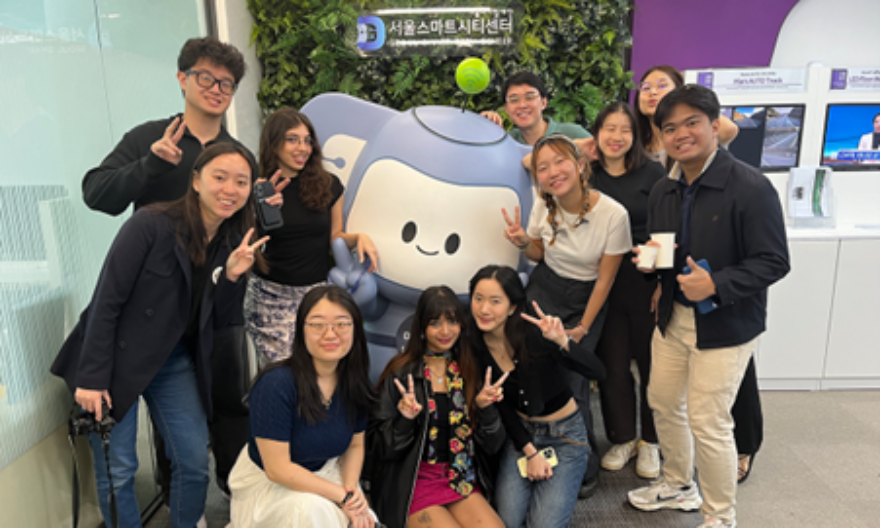First-year students hit the road with Week 7 Learning Across Boundaries
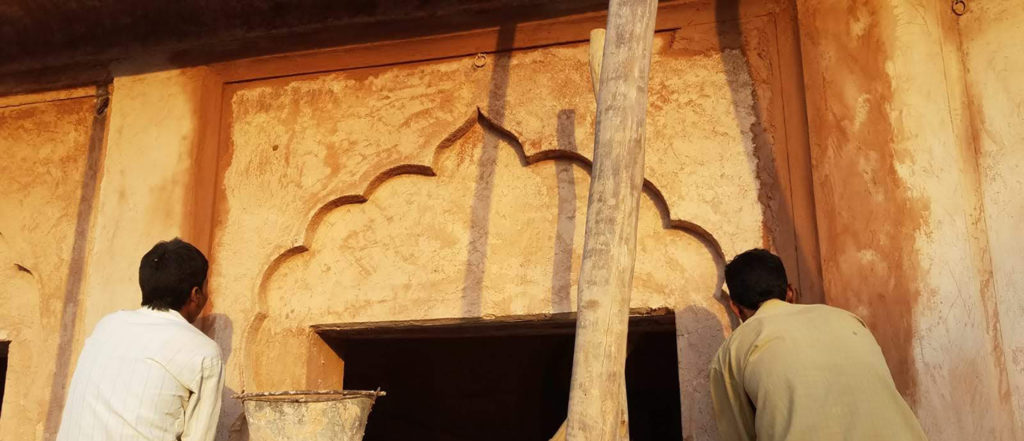 Image provided by Anindo Besaul.
Image provided by Anindo Besaul.
Every year, as part of the College’s flagship Week 7 Learning Across Boundaries (LAB) programme, first-year students, faculty and staff engage in learning projects of up to a week that explore themes of the Common Curriculum outside the confines of a traditional classroom. Week 7 LAB projects are faculty-generated initiatives that are organised in collaboration with the Centre for International & Professional Experience (CIPE).
“The Week 7 programme takes students out of the classroom, to explore themes of the Common Curriculum in broader context, out in the world,” said Ms Beth Uding, Senior Manager of Experiential Learning at CIPE. “Each project is designed with connections to the Common Curriculum in mind, and we hope that following Week 7, students are able to bring their learning back into Common Curriculum classes and continue to build on it.”
Week 7 occurs midway through the first semester and comprises both local and international projects. This year, 250 first-year students participated in 14 Week 7 LAB projects, from exploring Singapore’s urban wildlife and thinking more critically about local cuisine, to learning about the creation of knowledge in London, to looking at marriage as an institution in Shanghai.
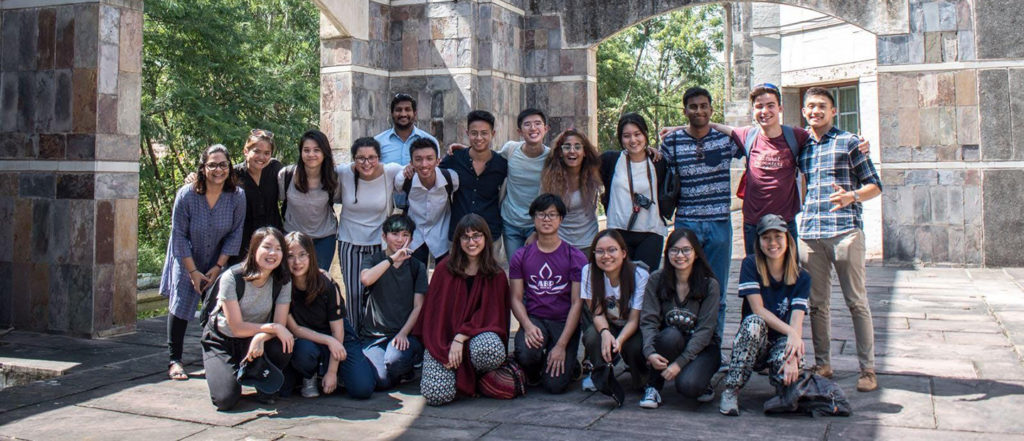 Yale-NUS students with Mr Alark Saxena (last row) in Bhopal, India. Image provided by Anindo Besaul.
Yale-NUS students with Mr Alark Saxena (last row) in Bhopal, India. Image provided by Anindo Besaul.
One of the new projects this year, themed “The Entanglement of Human and Environmental Dynamics: Bhopal, A City Explored Through the Lens of Environmental History and Systems”, took students into the heart of Bhopal, India. The project explored the unique social-ecological system of the city, where forces of the old and the new, tradition and modernity are remarkably intertwined. The LAB was led by Associate Research Scientist Alark Saxena, Visiting Faculty from Yale School of Forestry and Environmental Studies and also a Bhopal native.
He said that Bhopal, while beautiful, is marred by a 1984 tragedy in which a gas leak from a pesticide plant killed thousands and sickened thousands more. The toxic pollution from the accident contaminated the environment around the area, causing myriad health problems in residents decades later.
“Nonetheless, the tragedy is an important lesson to all, especially the younger generations, that even the best intentions with poor oversight can culminate in environmental catastrophe and social injustice,” Mr Saxena said. “Yet, Bhopal is also a story of rejuvenation and revival – it is not just a disaster site but a site of people’s resilience, ambition and growth after a tragedy.”
For Anindo Mesbaul (Class of 2022), he learned how the cultural, environmental and economic realities of Bhopal are both complementing and competing with one another as the city takes steps towards redefining itself as both a smart and green city. Describing his experience in Bhopal as “inspiring and dreamy”, he recalled that one of his fondest memories of the trip was the long bus rides where he got to know his Week 7 group mates more personally and admire the ever-changing sceneries of nature and people.
“As a person who is still somewhat unsure about the specific academic field that I want to specialise in, this trip was also inspiring in that it gave me a glimpse of how different disciplines function in the real world,” he said.
Another overseas Week 7 project, themed “War in Vietnam: Representations and Judgements”, dove deep into one of the most contested conflicts in South East Asia in the last century – “the Vietnam War” as known to the Americans and “the American War” as known to the Vietnamese. In this trip, students travelled to Hanoi and Ho Chi Minh City to visit public museums and other curated sites that memorialise the war.
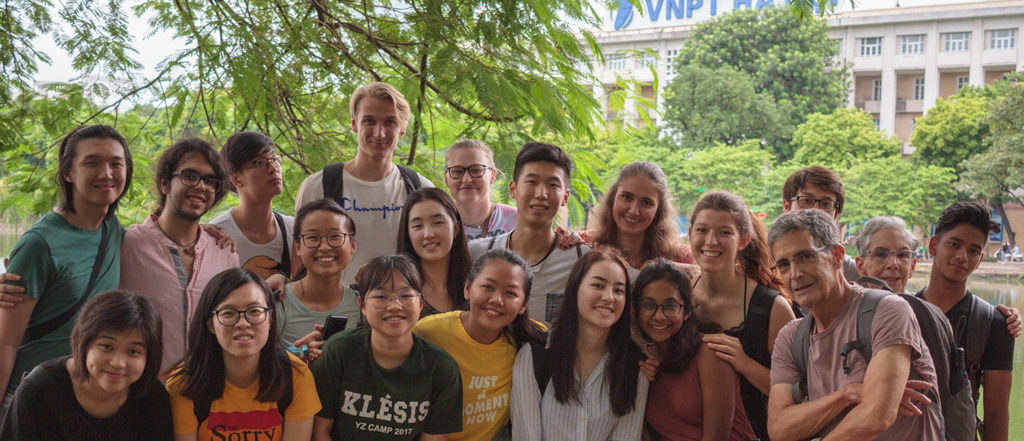 Yale-NUS students in Vietnam, in the Week 7 project led by Professor Terry Nardin and Professor Jane Nardin (second and third from right). Image provided by Elizabeth Stepton.
Yale-NUS students in Vietnam, in the Week 7 project led by Professor Terry Nardin and Professor Jane Nardin (second and third from right). Image provided by Elizabeth Stepton.
For Elizabeth Stepton (Class of 2022), not only was she grateful that the trip allowed her to see a range of perspectives about the war beyond those often reiterated by the Americans, such as that of the Vietnam war as “a necessary evil”, she also appreciated that the trip built upon what she had learnt in the Common Curriculum.
“I particularly liked that this trip gave me a chance to explore specific, typically hidden topics in the Common Curriculum, such as the experiences of Vietnamese women during the war. We don’t really get to discuss these latent underlying topics in school,” she added.
Back in Singapore, another new project titled “Urban Wildlife in Singapore” brought students all across the island to explore issues of urban wildlife and animal diversity. During the programme, students went on nature hikes to observe the birdlife, otters and native fauna of Singapore as well as engaged in dialogue with a host of local stakeholders such as Nature Society of Singapore and National Parks Board.
“One of the talks I enjoyed the most was the one with the Animal Concerns Research and Education Society (ACRES). It included a facilitated discussion about animals that occasionally invade private residences located on the edge of wildlife reserves. The discussion included a group of students that represented animal rights which gave the animals a voice in the matter,” said Nicholas Chang (Class of 2022).
Glen Ang (Class of 2022), another participant, said his greatest takeaways from the project are a renewed knowledge about the primacy of conservation in the Singapore government’s masterplan for the city and an enhanced appreciation for the bird biodiversity in Singapore.
Echoing his thoughts, Nicholas commented, “My fondest memories of the programme are the early morning walks when we would listen to bird calls and snap pictures of monitor lizards. It made me see that wildlife conservation is an imperative part of urban society. However, because we live in a human-centric world, we pay little care to the needs of animals and wildlife conservation does not get the attention it deserves.”
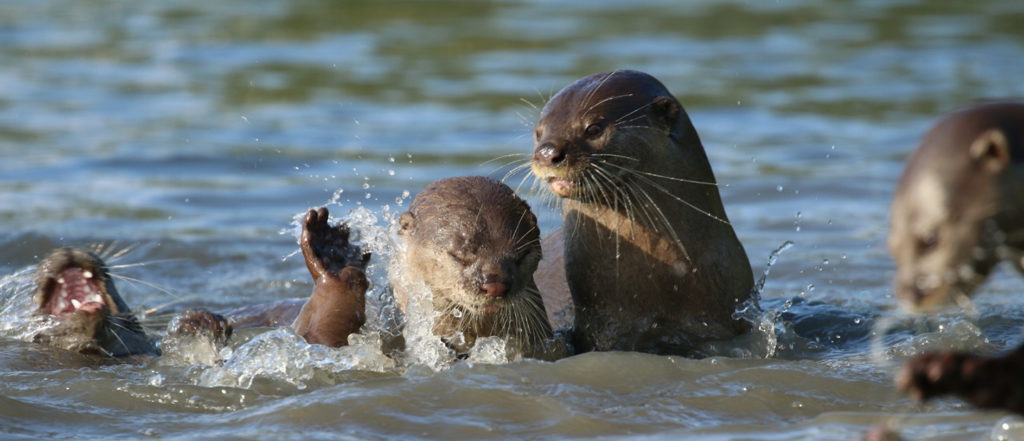 Image provided by Urban Wildlife Student Group, Yale-NUS College.
Image provided by Urban Wildlife Student Group, Yale-NUS College.
The Week 7 programme ended with a symposium, in which students and faculty gathered to share their insights and knowledge gained from their projects. Since its inception in 2014, the Week 7 LAB programme has seen a meaningful ripple effect in the community even after its conclusion – such as influencing students’ curricular choices and inspiring them to take up summer projects that were seeded by their Week 7 experiences.

